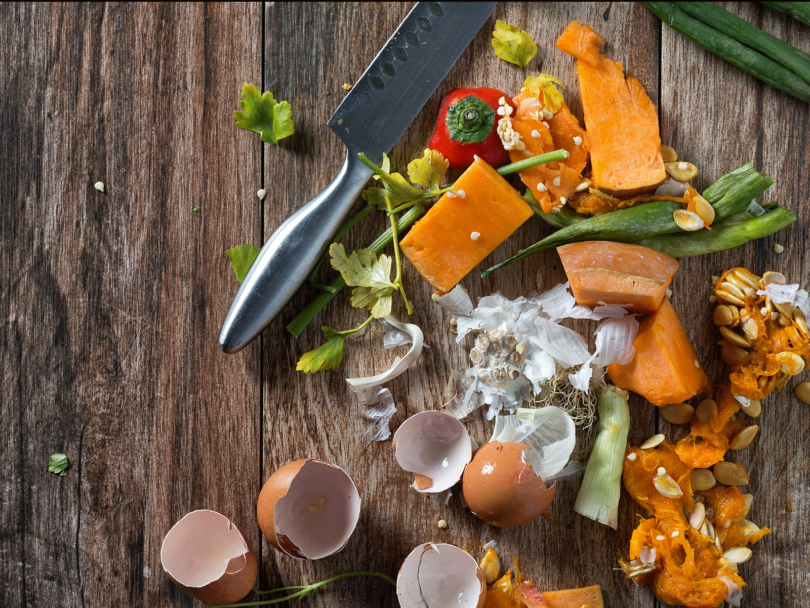As the old saying goes, one person’s trash is another person’s treasure. But can one person’s trash be another person’s dinner?
While dumpster diving is seen as a fairly harmless activity and a great way to score secondhand furniture, taking and eating food from the trash is still taboo in America. Freegans want to change that perception. A mashup of the words “free” and “vegan,” freegans are out to conserve resources and find value in what others consider waste.
Janet Kalish is an organizer for freegan.info, a website that provides information and resources for freegans around the country and the world. She has been a freegan since 2004.
When I first heard about freeganism and eating food from the trash, I was skeptical,”
says Kalish, who lives in New York City. “But I was also curious. How are they doing it?”
When Kalish went on a trash tour through the city and learned more about freegans’ desire to repurpose food and other items from the garbage, she was hooked. The message fit in with her own desire to have as minimal an impact as possible on the planet. Still, she was hesitant when she first started taking food from the trash.
“There was a natural hesitancy,” Kalish says. “At first I only took stuff with lots of good packaging. For instance, I would pick a grapefruit over an apple, since I would peel the grapefruit before I ate it anyway.”
She no longer worries about that kind of thing. “Eating food from the trash is different from what people imagine,” Kalish says. “Freegans aren’t eating rotten food. Many restaurants clear out their bakery cases and toss that food into a bag. Twenty minutes ago a pastry cost $1, $2, or $3. Now, it’s free.”
Kalish now leads trash tours around New York City, educating others about where to find the best food and other items.
“The tours are judgment-free zones,” she says. “We are a friendly, cooperative community of people who want to reduce waste and keep things that are still good out of the landfill.”
Kalish acknowledges it may be more difficult for people living in smaller cities to overcome the perception that looking through the trash is wrong or shameful.
“Bending down and opening a trash bag takes no skill; it’s just the stigma that keeps people from doing it,” she says.
“It’s easier to have anonymity in a large city. Although it may be harder to deal with the social factor in a small town, that doesn’t mean it’s impossible.”
While there are no hard and fast rules for being a freegan, here are some of Kalish’s top tips for salvaging food and other items from the trash:
- USE YOUR SENSES. “Our five senses are our first line of survival,” Kalish says. “Nature gave us our senses for a reason. If something smells spoiled, don’t take it and don’t eat it.”
- DON’T EAT WHILE YOU COLLECT. “Although it may be tempting, be sure to take everything home and look it over to make sure what you took is OK to eat,” she says.
- SELL-BY DATES ARE GOOD INDICATORS, but are not set in stone. “Don’t pass something over just because it is within a day or two of its suggested sell-by date,” Kalish says. “That’s where your senses come in. A best-by date is a suggestion, not a mandate.”
- BE RESPECTFUL. Good etiquette is important, even when picking through the trash. “If trash is in bags, untie the knot, don’t cut the bag open,” she says. “This takes time, and you have to be patient. It also makes it easier for you. Opening the top of the bag means you can see all the contents and can determine whether there is something in there you want or need. When you’re done, retie the bag.” Kalish even goes so far as to pick up nearby litter and put it in the bag before closing it up, so she can make the spot even cleaner than it was before she got there.
“The biggest misconception is that ‘freegan’ means ‘freeloader,’” Kalish says. “Other people think freegans are looking for a cheap and easy way to live, that they are cheating society, taking the lazy way out, or even stealing. They are criticized for living off the very system that they dislike. But that’s a misconception about their philosophy. The goal is to make a tiny dent in the amount of stuff that finds its way to a landfill.”
Kalish wants everyone to remember that our resources are not infinite.
“We are removed from any sense of the resources needed to produce the things we use every day,” she says. “Think about all the effort it takes to deliver a head of lettuce to the store. Someone had to grow it and pick it, and someone had to deliver it all that way on a truck. If we are putting forth all that effort, we need to use what is being created, rather than just throw it away.”

